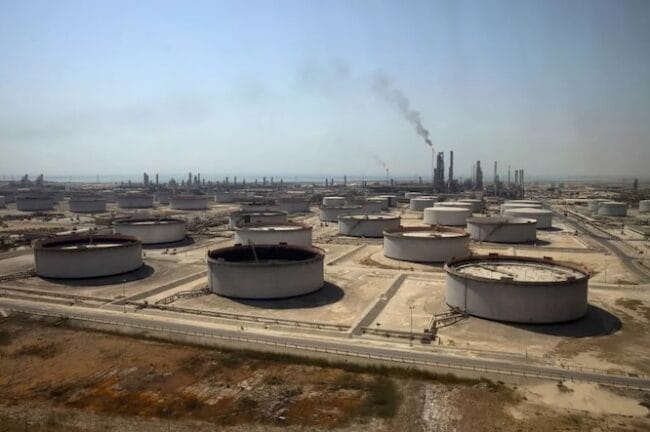The US’s bunker-busting involvement in Israel’s conflict with Iran is having a minimal impact on global oil prices and stock markets, at least for the time being.
The USA hope is that Iran will not retaliate in a way that disrupts the worldwide flow of crude oil, which would harm global economies as well as its own. This morning, U.S. President Donald Trump tweeted a ‘threat,’ about Iran: “EVERYONE, KEEP OIL PRICES DOWN. I’M WATCHING! YOU’RE PLAYING RIGHT INTO THE HANDS OF THE ENEMY. DON’T DO IT!”
The S&P 500 was slightly down by 0.1% in early trading, following a week of fluctuating stock prices due to concerns about the potential escalation of the conflict. Oil prices increased 4% shortly after trading began on Sunday night, but they quickly leveled off as attention shifted from the actions of the US military to potential reactions from Iran.
As of 9:35 a.m. Eastern time, the Dow Jones Industrial Average had dropped 37 points, or 0.1%, and the Nasdaq composite was down by 0.4%.
By Monday morning, the price of a benchmark barrel of US oil had risen 0.4% to $74.16, after briefly dipping into the negative. Brent crude, the international standard, saw a slight increase of 0.2% to $77.17 per barrel.
These prices are still higher than they were before the conflict began just over a week ago, when a barrel of benchmark US crude was close to $68.
There are concerns that an escalating war could constrict the global supply of oil, leading to increased prices for oil, gasoline, and other products derived from crude. Iran, a significant producer of crude oil, could potentially block access to the Strait of Hormuz off its coast, through which a large portion of the world’s oil is transported daily.
The oil market has seen a wave of calm as analysts suggest Iran is likely to avoid shutting down the Strait of Hormuz, a crucial channel for its own oil exports, primarily to China, from which it derives much-needed revenue.
“It’s a scorched earth possibility, a Sherman-burning-Atlanta move,” commented Tom Kloza, chief market analyst at Turner Mason & Co. “It’s not probable.”
U.S. Secretary of State Marco Rubio, in an interview with Fox News on Sunday, warned that any attempt by Iran to disrupt traffic through the strait would constitute “economic suicide” and prompt a U.S. response.
At a regular briefing in Beijing, Chinese Foreign Ministry spokesperson Guo Jiakun addressed the issue, saying, “China is willing to strengthen communication with Iran and relevant parties to continue playing a constructive role in promoting de-escalation” of the situation.
“The Persian Gulf and its adjacent waters are important international channels for cargo and energy trade. Maintaining security and stability in this region serves the common interests of the international community,” he added. However, there remains uncertainty regarding Iran’s next course of action.
Andy Lipow, a seasoned Houston analyst who has been covering oil markets for 45 years, warned that countries don’t always act rationally and he wouldn’t be taken aback if Tehran reacted impulsively for political or emotional reasons.
“If the Strait of Hormuz was completely shut down, oil prices would rise to $120 to $130 a barrel,” Lipow predicted, adding that this could result in gas prices soaring to around $4.50 per gallon and negatively impacting consumers in other ways.
